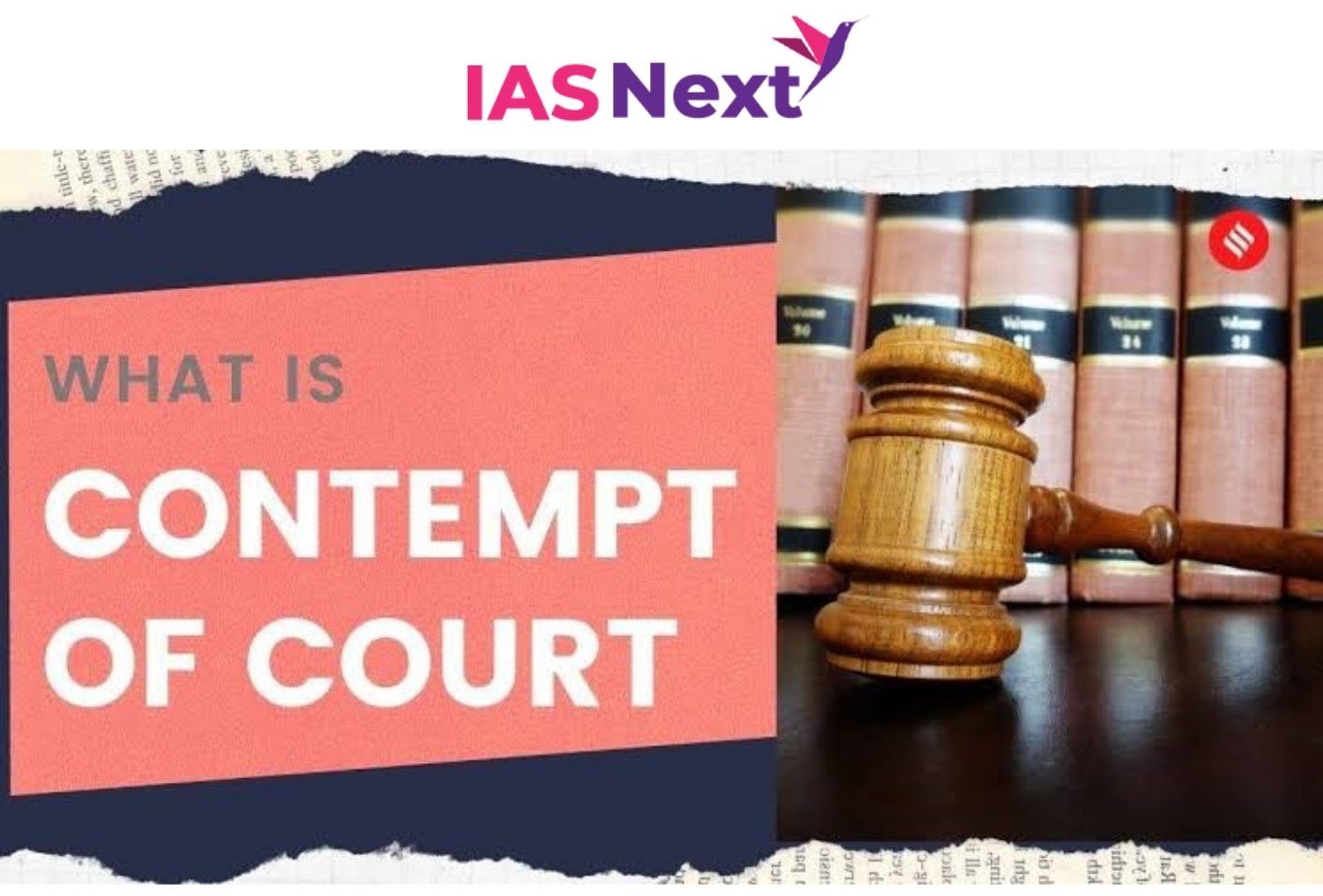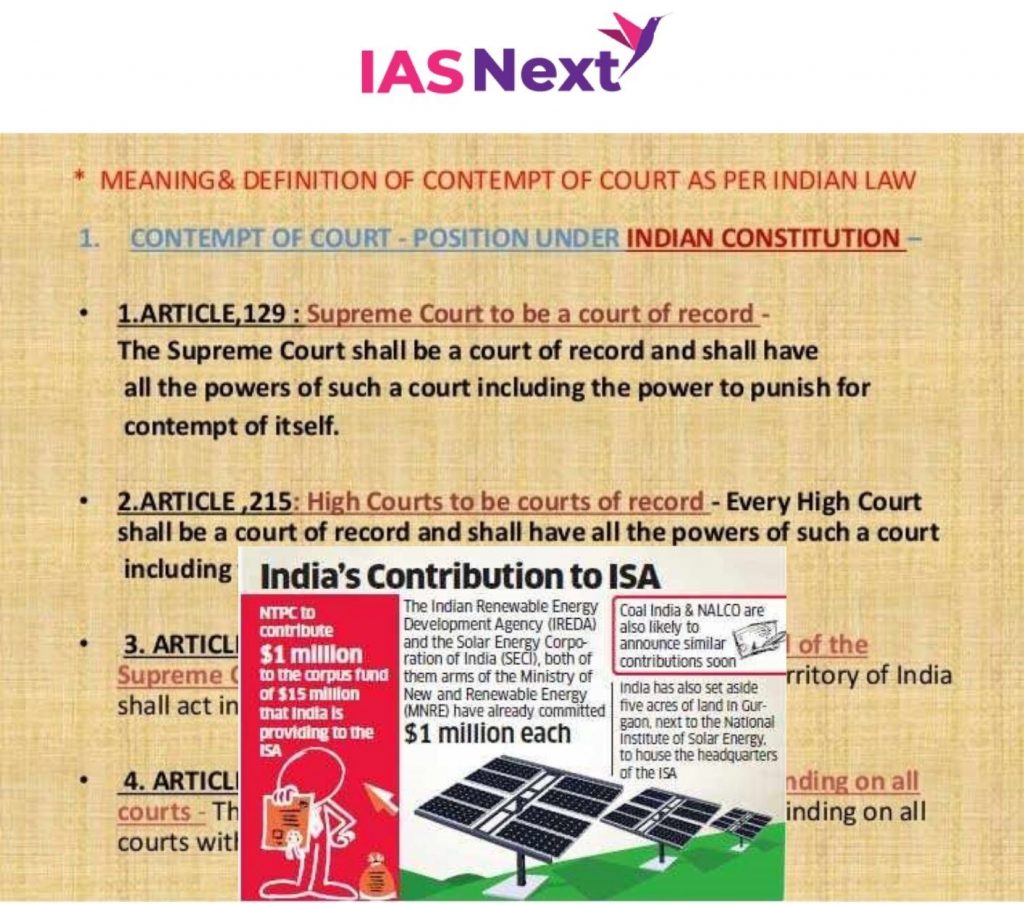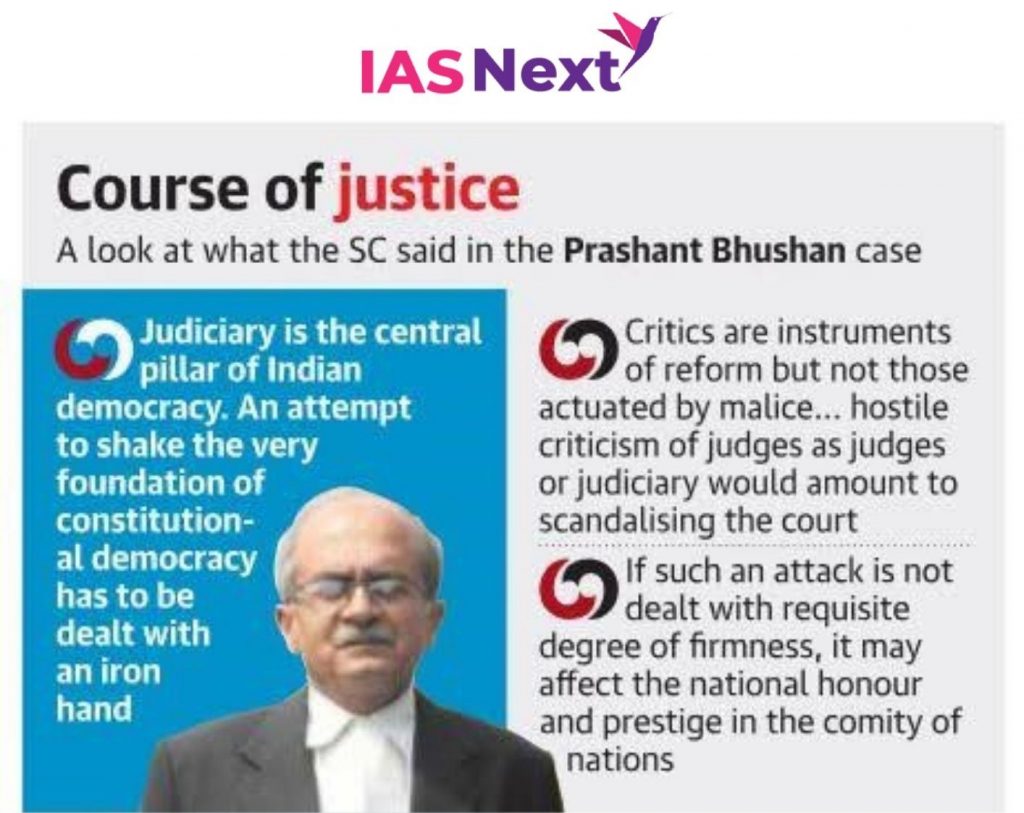CURRENT AFFAIRS
Get the most updated and recent current affair content on Padhaikaro.com
Consent of AG on Contempt Proceedings
- IAS NEXT, Lucknow
- 21, Oct 2021

The Attorney General for India KK Venugopal recently declined to grant consent to initiate criminal contempt proceedings against the National President of Azad Samaj Party, Chandra Shekhar Azad for his comments levelling allegations against the judges of the Supreme Court.
Background:
The AG was considering a request to grant consent under Section 15(1)(b) of the Contempt of Courts Act, 1971 to initiate contempt proceedings against Azad.
What is the law on contempt of courts?
The Contempt of Courts Act 1971 defines civil and criminal contempt, and lays down the powers and procedures by which courts can penalise contempt, as well as the penalties that can be given for the offence of contempt.
- Contempt of court is the offense of being disobedient to or disrespectful toward a court of law and its officers in the form of behavior that opposes or defies the authority, justice and dignity of the court.
Why is the consent of the Attorney General required to initiate contempt proceedings?
The objective behind requiring the consent of the Attorney General before taking cognizance of a complaint is to save the time of the court.
- This is necessary because judicial time is squandered if frivolous petitions are made and the court is the first forum for bringing them in.
- The AG’s consent is meant to be a safeguard against frivolous petitions, as it is deemed that the AG, as an officer of the court, will independently ascertain whether the complaint is indeed valid.
Under what circumstances is the AG’s consent not needed?
The AG’s consent is mandatory when a private citizen wants to initiate a case of contempt of court against a person.
However, when the court itself initiates a contempt of court case the AG’s consent is not required.
- This is because the court is exercising its inherent powers under the Constitution to punish for contempt and such Constitutional powers cannot be restricted because the AG declined to grant consent.
What happens if the AG denies consent?
If the AG denies consent, the matter all but ends.
The complainant can, however, separately bring the issue to the notice of the court and urge the court to take suo motu cognizance.
- Article 129 of the Constitution gives the Supreme Court the power to initiate contempt cases on its own, independent of the motion brought before it by the AG or with the consent of the AG.

